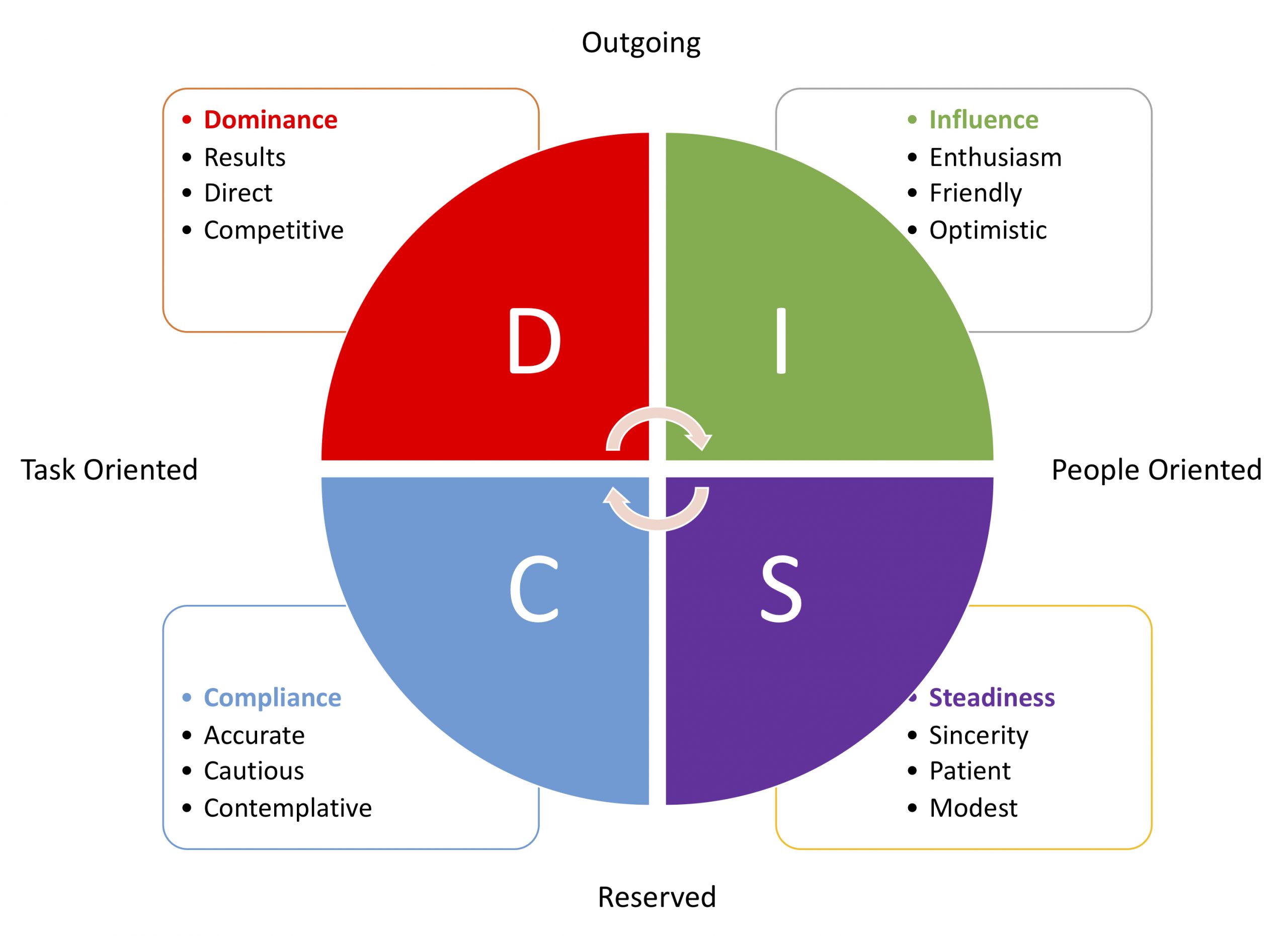Business Bites: Happy, healthy people
Emotional intelligence (EI) is the ability to recognise your emotions, understand what they’re telling you, and realise how your emotions affect people around you.
EI also involves your perception of others: when you understand how they feel, this allows you to manage relationships more effectively1.
Studies have found a strong association between EI, driving change and visionary leadership. In order to excel, leaders need to develop a balance of strengths across the suite of EI competencies. When they do that, excellent business results follow.
How can you tell where your EI needs improvement — especially if you feel that it’s strong in some areas? Reviewing the 12 competencies2 will assist you in knowing where you might need some development.
So, how EI are you? Click here to take a quiz and find out.

Use the DiSC tool to look deeper into how you – and your teams – perform
The DiSC model of behaviour
You may decide to look deeper into how you and your teams perform and why. A tool to help do this could be DiSC – where DiSC represents Dominance, Influence, Steadiness, and Compliance3.
The DISC model of behaviour was originally proposed by William Moulton Marston, a physiological psychologist with a PhD from Harvard. His 1928 book, Emotions of Normal People, established the theories that were later expanded by many others.
- People with D personalities tend to be confident and place an emphasis on accomplishing bottom-line results
- People with I personalities tend to be more open and place an emphasis on relationships and influencing or persuading others
- People with S personalities tend to be dependable and place the emphasis on cooperation and sincerity
- People with C personalities tend to place the emphasis on quality, accuracy, expertise, and competency
A free version of the DiSC personality test can be accessed here. Other versions can be found online.
These assessments can give you a guide to:
- Your DiSC behaviour style and preferences
- The behaviour you are likely to show in your current role
- Any tensions between your underlying and exhibited styles
- Your communication style
- What motivates you?
- Your decision-making style
- How you prefer to be managed
Cornerstone principles of DiSC4
- All styles are of equal value and everyone is a blend of all four styles
- Your work style is also influenced by other factors such as your life experience and education
- Understanding yourself better is the first step to being more effective when working with others
- Learning about other people’s styles can help you understand their priorities and how they may differ from your own
- You can improve the quality of your workplace by using DISC to build more effective relationships
You can use this model to help team building and recruitment, improve performance, resolve conflict, and much more. Below are some of the benefits5:
More time and energy for productive activity
When teams aren’t working well, huge amounts of time and energy are taken up with resolving conflict, dealing with performance issues, and remedying poorly communicated expectations. You’ll have a lot more time to spend on productive activity if your people learn to work alongside one another better.
Better fit between team members and roles
People become dissatisfied when they aren’t well matched to their jobs. When you understand a person’s natural preferences, it is easier to fit them with a job they’ll like and will be good at. This helps improve performance and engagement.
Happiness makes you healthier6
It doesn’t take a research study from a national institute to know that happy people are less stressed. That automatically gives them an edge when it comes to health.
Studies conducted by psychology professor and social psychologist DG Myers have compared stressed, depressed employees to happy ones and found that content workers have lower medical costs.
The American Psychological Association research mentioned above also notes that happiness has a positive effect on healthy behaviour, mental health, stress, coping and the immune system.
Nothing is more important than our health. Without it, we can’t be our best at work, home, in social settings or anywhere else.
References
1. Emotional intelligence in leadership. Learning how to be more aware. mindtools.com
2. Goleman D and Boyatzis R. Emotional intelligence has 12 elements. Which do you need to work on? Harvard Business Review. 6 February 2017.
3. What is DiSC? Deepen your understanding of yourself and others. www.discprofile.com
4. Cornerstone principles of everything DiSC. DISC GB.
5. The DiSC Model. Understanding people’s personal styles. mindtools.com
6. Keller G and Papasan J. The ONE Thing: the surprisingly simple truth behind extraordinary results. 25 April 2014.